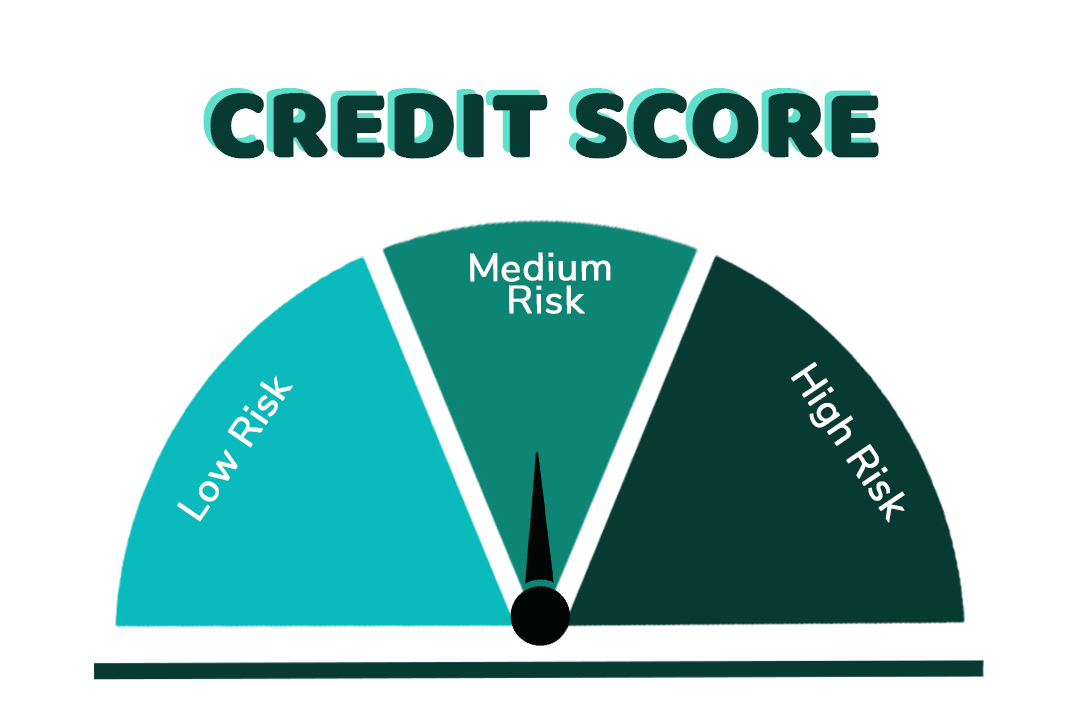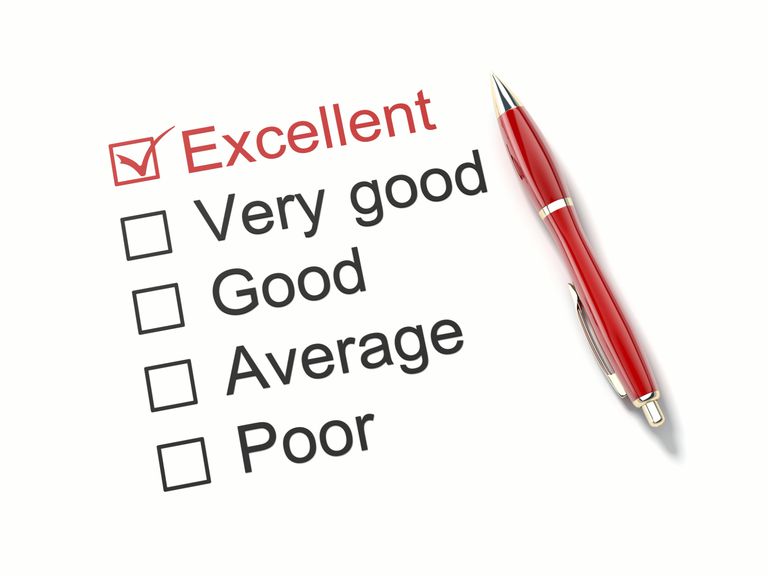Knowing the Importance of Your Credit Score

Your credit score, also known as your credit rating, is a manifestation of your financial health. It can spell the difference between qualifying for a loan product or not, so it’s best to be aware of what your credit score is along with the related concepts that often go with conversations around it.
Since most purchases people make these days are being monitored electronically, financial institutions like banks and credit card companies now know where people spend their money. The way you use credit is also tracked and used to assign you a credit score, which will show the level of risk involved in lending you money or your likelihood of paying the money back to the lender.
Your credit score is computed when you apply for credit, such as a personal loan, a credit card, a home loan, a car loan, or another similarly structured loan. The higher you credit rating is, the better your chances to get financial products such as a loan, and also the bigger chance of borrowing money at a low interest rate.
Say, for instance, you’re applying for a business loan. You’re pretty sure that it will be approved because you have the complete documents and a steady income that will prove that you will be able to pay back the money you owe. But to your surprise, the lending company didn’t approve your loan application, so you keep wondering what went wrong.
Financial institutions like banks or P2P lending companies like Blend PH count several factors when deciding whether or not they should lend you any money. Apart from submitting your requirements and your financial information, they will be looking at your credit report to gauge your capacity to make loan repayments, so knowing you credit score is important.
What is my credit score?
A credit score is a three-digit number that appears on your credit report. When it comes to the most popular rating system, it’s usually the FICO score that gets assigned. FICO is short for the Fair Isaac Corporation, a system used by 90 of the top 100 lending institutions in the United States for their risk assessment needs. With your FICO score, you may be assigned a rating starting from 300 to 850. It is assigned to you based on your creditworthiness or your ability to pay. The higher the number you get, the more favorable options you’ll have. If you get a lower credit rating, you won’t qualify for typical loans. Various sources say different things about what constitutes a low credit score in the FICO model. A credit score below 669 is considered to be bad, while some sources say anything under 640 is considered poor. There are those who treat 580 or even as low as 560 as belonging to the low or very poor scores, but people with credit scores along these numbers should definitely change their financial behavior. Those on the other end of the coin, meanwhile, should expect to get the best credit cards, loans, and mortgage rates.How is my credit rating calculated?
The exact criteria for generating credit scores vary for each system, but there are some common criteria that these companies use:- Your payment history. This is the main ingredient in your credit score. It’s based on how regularly you pay back your debt, if you do it on time, and on how much you pay. Your credit payment history accounts for 35% of your FICO credit score, which is the rating system used by most lenders.
- Your credit utilization. This is regarding how much available credit you are spending. For example, you’re most likely going to get a lower credit score if you’ve maxed out your credit card. Some would even go as far as saying that using more than 1/3 of your available credit limit is negative to lenders.
- The negative information on your financial history. Did you make late payments? Did you miss your payment due date? Late payments, defaults, foreclosures, and collection accounts are a few examples of negative information that can be obtained from your file. These records typically stay in your file for at least seven years, so it’s best to avoid having them on your credit file.
- Your credit mix. Did you use multiple credit cards in the past? Did you get an auto loan? How about a home loan? Credit scoring involves the type of credit used and how many of them you have, because this type of information can indicate how well you manage or handle different credit mixes. People with very high credit scores often have a diverse credit portfolio.
- Your credit account’s age. Financial institutions will also consider not just your payment history but also your credit history. How long have you had your credit card? When did you last use it?
- The frequency of opening credit accounts. How many credit cards do you have? Did you apply for them at the same time? How many loans did you apply for? These things can impact your credit score.
Are there other factors that can impact my credit score?
You might be worried that other personal information you provide might affect your credit score. The easy answer is no. Aside from the items listed above, you shouldn’t worry about other personal or banking information influencing your credit rating, as long as they don’t pertain to credit accounts. Your age, your gender, your religious affiliation, your ethnicity, your current salary, your personal assets, and even your banking accounts – savings accounts, checking accounts, prepaid or debit cards, investment accounts, and others – shouldn’t count towards your credit score.
Who has my credit information?
In the Philippines, the Credit Information Corporation or CIC is the agency responsible for registering credit data for citizens. It is authorized to collect and consolidate your information as well as share it with financial institutions such as banks, insurance firms, cooperatives, and the like. The CIC has identified four (4) credit bureaus authorized to access credit data and compute credit scores:- CIBI Information, Inc.
- Compuscan Philippines
- CRIF Philippines
- TransUnion Philippines
Why do I need a good credit score?
Establishing a good credit score will primarily help you get your finances in order. If you maintain good credit, you’ll get a boatload of benefits that you won’t usually get if you do otherwise. Some of the advantages include:- Better chances of approval for loans or credit cards
- Lower interest rates on loans or credit cards
- Power to negotiate in getting lower interest rates
- Lower insurance costs on life insurance or car insurance
- Easier approval for tenancy applications on rentals or apartments
- Better chances of getting hired in companies that do background checks
- Better deals on utilities such as phone plans, new electric service connections
How can I improve my credit score?
Improving your credit score should be a no-brainer once you completely understand why you’re struggling with your rating. It takes time, discipline, and hard work to recover from a poor credit score but by being financially responsible through a handful of small steps or moves, you can improve your score dramatically over time. Consider our simple tips below:- Always pay what you owe on time. Because payment history is the top factor that influences your credit score, making timely payments play a huge part in your financial journey painless. Be sure you’re using automatic payments or reminders so that you won’t forget your due date.
- Adjust your credit utilization. If your credit card has a $50,000 credit limit, do your best not to max it out. Discipline yourself to spend less so that you can lower your balance-to-limit ratio (which can effectively boost your credit rating). When you pay off your credit card, make sure you’re paying more than the minimum required payment.
- Pay off your debt. Make any outstanding payments that are past due and bring them up to date. You don’t want your credit score to go down. The more time you take to pay off your debt, the larger impact you’ll get on paper.
- Don’t apply for another credit account unless you pay off everything else. Don’t cover up a mistake with another mistake! New credit requests will only be useful if you don’t have any other existing line of credit. And if you’re done pay off your old account, keep it open to maintain your available credit, which enhances your balance-to-limit ratio.
- Make sure your records are accurate. Periodically update your credit information to make sure that you have the right details. In this age of unlimited information, people can be duped by wrongdoers such as those who steal credit card info or those who victimize people through misrepresentation. If you find inaccuracies or discrepancies, you should initiate a dispute as soon as you can to get it fixed.
